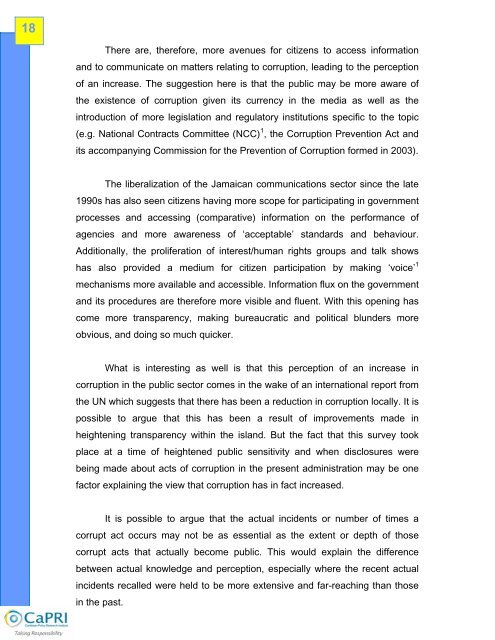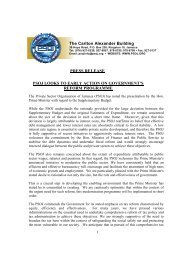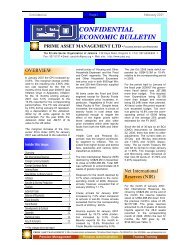A LANDSCAPE ASSESSMENT OF POLITICAL CORRUPTION IN ...
A LANDSCAPE ASSESSMENT OF POLITICAL CORRUPTION IN ...
A LANDSCAPE ASSESSMENT OF POLITICAL CORRUPTION IN ...
Create successful ePaper yourself
Turn your PDF publications into a flip-book with our unique Google optimized e-Paper software.
18<br />
There are, therefore, more avenues for citizens to access information<br />
and to communicate on matters relating to corruption, leading to the perception<br />
of an increase. The suggestion here is that the public may be more aware of<br />
the existence of corruption given its currency in the media as well as the<br />
introduction of more legislation and regulatory institutions specific to the topic<br />
(e.g. National Contracts Committee (NCC) 1 , the Corruption Prevention Act and<br />
its accompanying Commission for the Prevention of Corruption formed in 2003).<br />
The liberalization of the Jamaican communications sector since the late<br />
1990s has also seen citizens having more scope for participating in government<br />
processes and accessing (comparative) information on the performance of<br />
agencies and more awareness of ‘acceptable’ standards and behaviour.<br />
Additionally, the proliferation of interest/human rights groups and talk shows<br />
has also provided a medium for citizen participation by making ‘voice’ 1<br />
mechanisms more available and accessible. Information flux on the government<br />
and its procedures are therefore more visible and fluent. With this opening has<br />
come more transparency, making bureaucratic and political blunders more<br />
obvious, and doing so much quicker.<br />
What is interesting as well is that this perception of an increase in<br />
corruption in the public sector comes in the wake of an international report from<br />
the UN which suggests that there has been a reduction in corruption locally. It is<br />
possible to argue that this has been a result of improvements made in<br />
heightening transparency within the island. But the fact that this survey took<br />
place at a time of heightened public sensitivity and when disclosures were<br />
being made about acts of corruption in the present administration may be one<br />
factor explaining the view that corruption has in fact increased.<br />
It is possible to argue that the actual incidents or number of times a<br />
corrupt act occurs may not be as essential as the extent or depth of those<br />
corrupt acts that actually become public. This would explain the difference<br />
between actual knowledge and perception, especially where the recent actual<br />
incidents recalled were held to be more extensive and far-reaching than those<br />
in the past.


